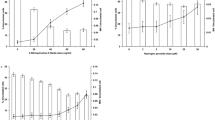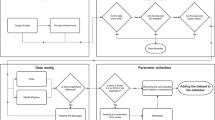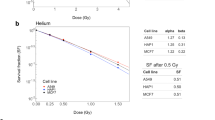Abstract
THE majority of studies relating to somatic cell mutation in cultured mammalian cells have been performed with established (heteronuclear) mammalian cells2. There are important karyotypic and metabolic differences, however, between cultured heteronuclear cells and mammalian cells in vivo and mutation in cultured diploid (homonuclear) cells may be more relevant to the in vivo situation. Mutation, in the broadest sense of the term1, has been studied in cultured diploid cells2–9 and there is evidence, from the work of Albertini and DeMars2 with 8-azaguanine resistant (Agr) variants of diploid human fibroblasts, that it may be possible to quantify radiation-induced mutation in diploid mammalian cells. Here we report that the utilisation of fructose, in place of glucose, as the major carbon and energy source, was used as a phenotypic character for mutation studies with a culture of diploid human fibroblasts. Although not yet fully understood, the fructose-utilisation mutation system does circumvent some of the problems of mutation expression time associated with the selection of Agr variants of cultured mammalian cells.
This is a preview of subscription content, access via your institution
Access options
Subscribe to this journal
Receive 51 print issues and online access
$199.00 per year
only $3.90 per issue
Buy this article
- Purchase on Springer Link
- Instant access to full article PDF
Prices may be subject to local taxes which are calculated during checkout
Similar content being viewed by others
References
Rieger, R., Michaelis, A., and Green, M. M., A Glossary of Genetics and Cytogenetics, Classical and Molecular (Springer-Verlag, New York, 1968).
Albertini, R. J., and DeMars, R., Mutation Res., 18, 199 (1973).
DeMars, R., and Held, K. R., Humangenetik, 16, 87 (1972).
Harris, M., J. Cell Physiol., 78, 177 (1971).
Rappaport, H., and DeMars, R., Genetics, 75, 335 (1974).
Sato, K., Slesinki, R. S., and Littlefield, J. W., Proc. natn. Acad. Sci. U.S.A., 69, 1244 (1972).
Shapiro, N. I., Khalizev, A. E., Luss, E. V., Marshak, M. I., Petrova, O. N., and Varshaver, N. B., Mutation Res., 15, 203 (1972).
Van Zeeland, A. A., Van Diggelen, M. C., and Simons, J. W. I. M., Mutation Res., 14, 355 (1972).
Varshaver, N. B., Luss, E. V., and Shapiro, N. I., Genetika, 5, 67 (1969).
Shapiro, N. I., Khalizev, A. E., Luss, E. V., Manilova, E. S., Petrova, O. N., and Varshaver, N. B., Mutation Res., 16, 89 (1972).
Cox, R., and Masson, W. K., Int. J. radiat. Biol. (in the press).
Cox, R., Masson, W. K., and Bance, D. A., Lab. Practice, 22, 733 (1973).
Kao, F. T., and Puck, T. T., J. Cell Physiol., 74, 245 (1969).
Searle, A. G., Adv. Radiat. Biol., 4, 131 (1974).
Author information
Authors and Affiliations
Rights and permissions
About this article
Cite this article
COX, R., MASSON, W. X-ray dose response for mutation to fructose utilisation in cultured diploid human fibroblasts. Nature 252, 308–310 (1974). https://doi.org/10.1038/252308a0
Received:
Issue Date:
DOI: https://doi.org/10.1038/252308a0
Comments
By submitting a comment you agree to abide by our Terms and Community Guidelines. If you find something abusive or that does not comply with our terms or guidelines please flag it as inappropriate.



